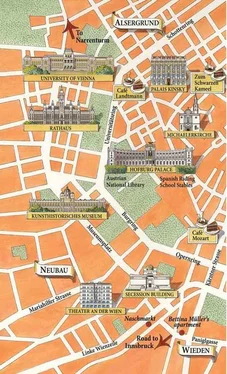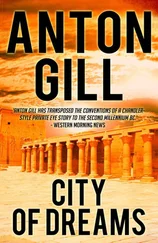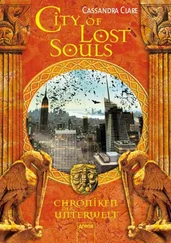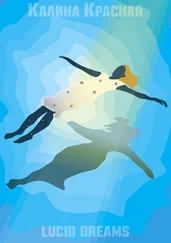Halfway down the path, Pollina, who had pressed herself against Sarah’s skirts and was taking small steps, began to shake so badly she could no longer walk, and Sarah, fighting the stiffness of her garments, tried to pick her up.
“Please,” she begged the footman. “Please, we must hurry.”
The footman nodded and swiftly scooped Pollina, too weak to protest, into his own arms. They began to half run, the footman shouting out an order to a housemaid as they entered the mansion. To Sarah’s intense relief, the footman led them toward the sound of the armonica, eventually calling to another footman, who threw open the doors of a large room.
In a blur, Sarah took in a frieze of plasterwork on a ceiling above delicately tinted paintings of garden scenes, enormous gilt mirrors, a central glass chandelier, and a series of wall sconces; small carved chairs and loveseats padded in rose and green velvet; a pianoforte, and yes, an armonica, and a man leaning over it. The footman set Pollina gently onto a settee, although once there the girl seemed to revive and sat up very straight, though still trembling.
Franz Anton Mesmer came forward, moving with deliberation. Clearly they were not the first visitors to simply appear on the doorstep, asking for the doctor’s help. Mesmer listened with great attention to Sarah’s garbled introductions.
“We’ve come from . . . from Prague,” Sarah said. “I need . . . I beg you . . . to look at . . . at my daughter. She is very ill.”
Mesmer dismissed the footman and—moving with almost irritating slowness—drew a chair near to the settee where Pollina perched. He took the girl’s hand and studied her intently. His own hands, large and steady, felt Pollina’s pulse, tested the movement of her joints, tilted the girl’s chin up and down, and then lifted her eyelids. Pollina sat back and covered her eyes protectively, pushing Mesmer away.
“Don’t touch them,” she hissed.
Mesmer sat back and considered her for several minutes.
“No,” he said at last. “I will not.”
“It’s not my eyes,” said Pols. “It is something else. I am taking medicine. But I can’t make it work.”
Again Mesmer seemed to consider this for a long time before he spoke.
“Why?” he asked. “Why can’t you?”
Pols shook her head. She began to cry. Mesmer began to stroke the tears from her face, then lightly touched her neck, her narrow chest, her arms and hands, her legs.
“The thing that is wrong. It is everywhere,” he said.
“Yes,” Pollina said. “It is everywhere.”
“Do you wish it to be gone?”
“Of course.”
“Truly?”
“I can’t,” said Pollina. “It is a part of me now.”
“You are afraid”—Mesmer pressed his hand against her heart—“that if you let this medicine work upon you, you will lose your blindness. And you will see.”
Sarah drew in her breath. She had not realized Pollina had been thinking this.
“I don’t want to see,” Pollina said.
“You do not want to see the stars?”
“I will lose their music.”
“You do not know this.”
“I feel it,” said Pols. “I am afraid.”
“I understand.”
“I would rather die,” said Pols, starting to shake again. “I would rather die.” Her body bent forward, wrenched with a terrible fit of coughing.
Of course, thought Sarah. Pollina was not afraid of dying. She was afraid of living and losing her music. Music was her vision.
No one had been able to understand why the medicine that should have stopped her disease had failed. Especially when Pols was so strong, had such an iron will.
An iron will strong enough to stop the medicine.
Mesmer began stroking the air above the girl, and when Pols at last ceased coughing, he began taking very deep breaths.
“Follow my breath,” he said.
“I can’t,” she gasped. “I can’t breathe that way. It’s too deep.”
“Listen to me,” said Mesmer. “You will never see in this world. That will never change. But the rest can change. The rest will change. You must let it. You must know it. Come. Listen.”
He rose from his chair and took Pollina’s hands, guiding her to a position in front of the armonica. And then he began to play, touching the glasses softly while looking at the girl.
He played for a long time. Sarah, whose eyes were at first also intently focused on Pollina, began to feel herself sliding into a kind of lucid dream. She saw the little girl before her and did not see her. She saw Mesmer playing, and she did not see him. She saw Philippine Welser, and Beethoven, and her father. She saw Max, and Nico.
I, too, have to let myself change .
For a moment, Sarah saw herself. As she had been, as she was, as she could be.
Mesmer stopped playing.
Was it over? Was Pollina cured?
The girl coughed and Sarah felt her heart plunge.
But then Pollina smiled. She touched her chest, proudly. The door to the salon opened. Sarah saw a young man with powdered hair tied in a ribbon stride into the room.
Mozart.
He was a little older than when Sarah had seen him at the Schloss in Innsbruck, but still crackling with energy, still alight with life and music and dreams of what was still before him.
Pollina turned to the young man and began speaking to him. Mozart laughed and gestured to the piano. Mozart and Pollina sat themselves on the bench. Pollina touched the keys. She began to play the beginning of Mozart’s Piano Concerto no. 9.
“It’s very good,” Pollina said, patting Mozart on the arm.
“Thank you,” said Mozart.
Pollina’s hands hovered above the keyboard for a moment and then she smiled. She improvised for a few minutes. Sarah recognized a playful rendition of the overture from Mozart’s opera The Magic Flute . An opera Mozart wouldn’t begin writing until near the end of his short life, still a decade away.
“I like that,” said Mozart, when she finished. “Is it your own composition?”
Pollina shrugged.
“You can have it,” she said solemnly. “Clean it up a bit. I am working on something else. An opera.”
“Ah,” said Mozart. “I would like to hear it. When you are finished.”
Pollina smiled.
“Okay,” she said, in English. “Cool.” This made Mozart giggle. They shook hands.
“Sarah,” said Pols, “we can go now.” She held out her hands and Sarah moved forward and took them.
Sarah opened her eyes. She was standing with Pollina in the Star Summer Palace. Elizabeth Weston was once again a cloaked corpse in the corner. Max and Nico had stopped playing the armonica. They appeared to be frozen. Sarah looked down. The sands of the hourglass were sinking into the stone floor.
“I think we have a few minutes,” Pollina said. “If you want to talk.”
“How are you feeling?”
“Well, I’m not going to start shouting ‘I am going to live! Live, I tell you!’” Pols snorted. “But I’m hungry.”
“Did that all just really happen?”
“I think so.”
“That was nice of you,” said Sarah. “To give Mozart The Magic Flute .”
“I borrow from him all the time,” said Pols. “It seemed fair.” She waved a hand toward where Elizabeth lay. “I’m not sorry she’s dead. But I will pray for her.”
“I suppose the security guard will wake up in a few hours and think she broke in and killed herself. Which she did. I’m glad Nico’s still here, though.”
“I think it will change things for him.” Pols smiled. “Having the choice to live or not. It’s very powerful.”
“Also, he has an immortal friend now,” said Sarah. “Wait till you meet Hermes.”
Читать дальше












